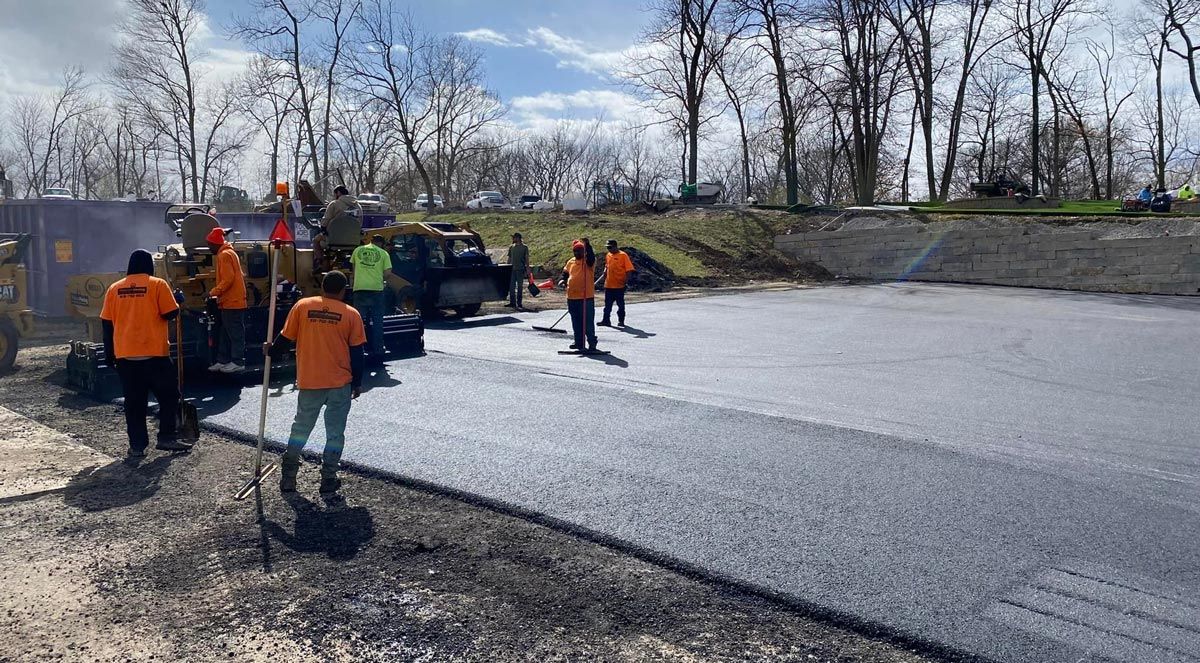Introduction
In the world of asphalt paving, understanding various types of pavement sealers is crucial for homeowners and businesses alike. Sealers play a significant role in maintaining the integrity and appearance of paved surfaces, including driveways, parking lots, and private roads. Whether you're considering a new asphalt driveway installation or looking into sealcoating options for an existing surface, this guide will provide you with all the information you need.
What Are Pavement Sealers?
Pavement sealers are protective coatings applied to asphalt to enhance durability and extend its lifespan. They act as a barrier against moisture, UV rays, oil spills, and other environmental factors that can degrade the surface. By regularly applying sealers, you not only improve the aesthetics of your pavement but also minimize repair costs down the line.
Why Use Pavement Sealers?
You might wonder why sealing your asphalt is necessary. Here are some compelling reasons:
Protection Against Weather Elements: Asphalt is susceptible to damage from rain and sun exposure. Sealers provide a protective layer that shields the surface from harsh conditions. Prevention of Cracks: Regular sealcoating can prevent small cracks from expanding into larger issues that require asphalt repair or resurfacing. Enhanced Appearance: A freshly sealed surface looks more appealing, increasing property value and curb appeal. Cost-Effective Maintenance: Investing in sealcoating can save significant money on expensive repairs or replacements later on.Types of Pavement Sealers
1. Coal Tar Emulsion Sealers
One of the most popular options among asphalt companies is coal tar emulsion sealers. These are known for their excellent protection against water and chemicals.
Benefits
- Superior resistance to gasoline and oil spills. Long-lasting results when properly applied.
Drawbacks
- May emit strong odors during application. Not environmentally friendly due to high VOC content.
2. Asphalt Emulsion Sealers
Asphalt emulsion sealers are another common choice for both residential and commercial paving services.
Benefits
- Less toxic than coal tar emulsions. Provides a smooth finish that enhances aesthetics.
Drawbacks
- Generally less durable compared to coal tar options.
3. Acrylic Sealers
Acrylic sealers are ideal for those looking for an eco-friendly option.
Benefits
- Quick-drying properties make them suitable for rapid applications. Excellent UV protection helps prevent fading.
Drawbacks
- Can be more expensive than traditional alternatives.
How To Choose The Right Sealer?
Choosing the right sealer can feel overwhelming given the variety available. Here’s how you can make an informed decision:
Assess Your Needs
Consider your specific requirements:
- Is it a residential driveway or a commercial parking lot? How much traffic does it endure? Understanding these factors will help you select between residential paving services or commercial options.
Evaluate Climate Conditions
Your local climate plays a pivotal role in determining which type of sealer is best suited:
- Hot climates might benefit from acrylic sealants due to their UV resistance.
The Application Process of Pavement Sealers
Understanding how to apply these sealants is just as critical as choosing them. Here’s a brief overview:
Surface Preparation: Clean the area thoroughly to remove dirt, debris, and previous sealant layers. Crack Repair: Address any cracks with appropriate asphalt crack sealing methods before applying sealer. Application: Use either a sprayer or squeegee for even distribution; ensure overlapping coverage without puddles forming. Drying Time: Allow sufficient time for drying based on weather conditions—typically 24 hours before allowing traffic on newly sealed surfaces.Common FAQs About Pavement Sealers
1. How often should I apply pavement sealer?
Generally, it's recommended to apply sealer every 2 to 3 years depending on traffic levels and climate conditions.

2. What is the cost of sealcoating?
The average asphalt sealcoating cost ranges from $0.15 to $0.30 per square foot depending on various factors such as location and preparation work required.
3. Can I DIY my sealcoating?
Yes! However, hiring professional asphalt paving sealing contractors may yield better long-term results due to expertise in preparation and application techniques.
4. How long does it take for sealer to dry?
Most pavement sealants take about 24 hours to dry completely before allowing light traffic; however, full curing may take longer based on humidity levels sealcoating and temperatures.
5. Are there eco-friendly options available?
Yes! Acrylic-based seals tend to be more environmentally friendly compared to coal tar emulsions which have higher VOC levels.
6. What happens if I don’t apply sealer?
Neglecting proper maintenance could lead your asphalt driveway or parking lot susceptible to wear-and-tear resulting in costly repairs like resurfacing or repaving down the line!
Conclusion
In conclusion, understanding different types of pavement sealers is essential for anyone involved in maintaining paved surfaces—whether you're managing commercial properties or caring for your residential driveway at home! With diverse options available today—from coal tar emulsions through eco-friendly acrylics—there's something suitable no matter what type of environment you're working within! Always remember that regular maintenance—including timely applications—is key when it comes down preserving those investments over time!
Feel free to reach out with any further questions about selecting appropriate products tailored specifically towards your needs!